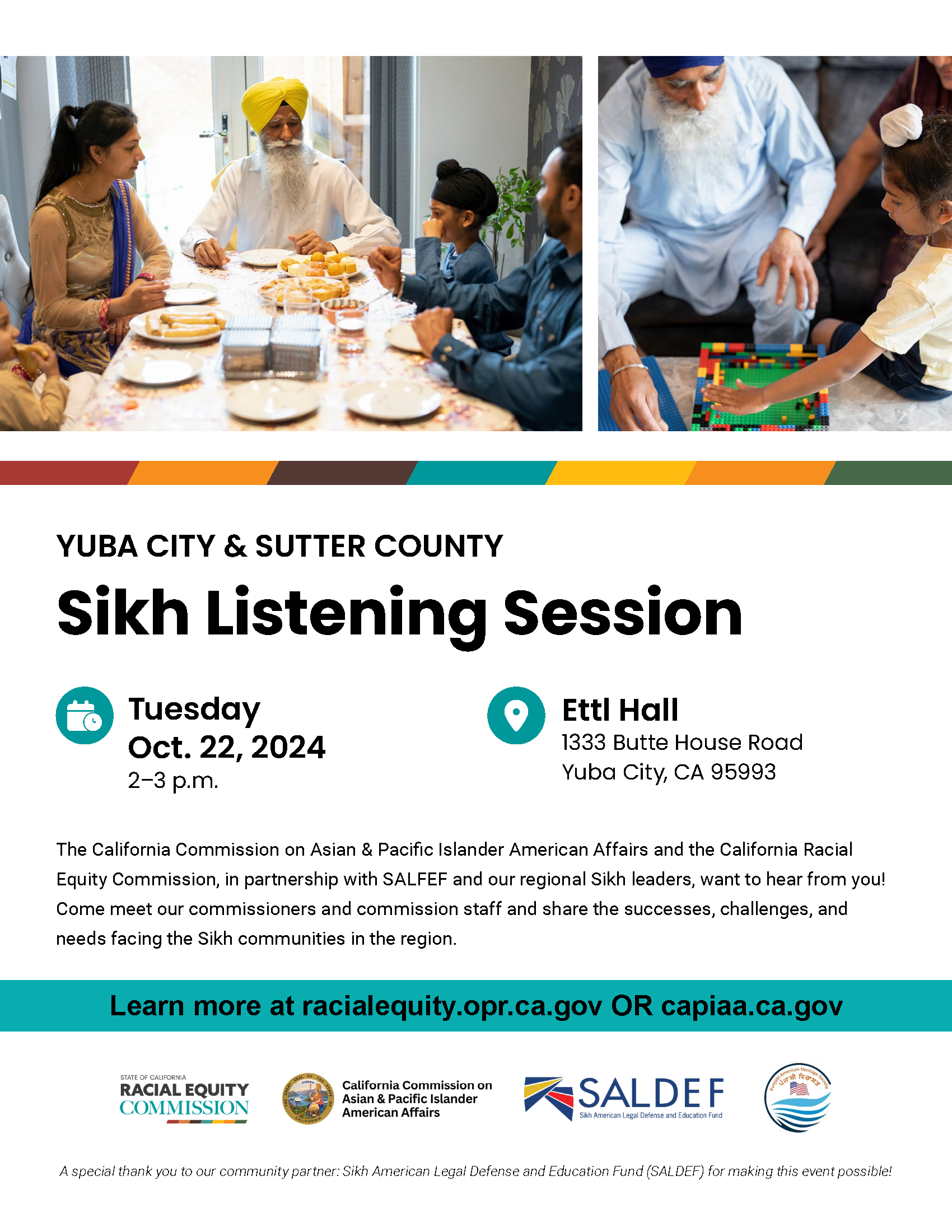California Racial Equity Commission Collaborates with County Governments and Community Partners for Listening Session with Sikh Community
October 15, 2024
Save the date for Tuesday, Oct. 22 from 2-3:30 p.m. in Yuba City for the 2024 Yuba-Sutter Sikh Listening Session.

The California Racial Equity Commission, California Commission on Asian & Pacific Islander American Affairs (CAPIAA), Sikh American Legal Defense and Education Fund (SALDEF), and the Punjabi American Heritage Society will partner for the 2024 Yuba-Sutter Sikh Listening Session on Oct. 22.
In partnership with regional Sikh leaders, the Listening Session will offer attendees the opportunity to engage with community members and hear stories of successes and challenges facing the region’s Sikh community. Attendees will also be able to meet and network with Commissioners and staff from all partner organizations.
“By having cross cultural engagement with community-based organizations like the Sikh American Legal Defense and Education Fund and CAPIAA, the Commission is able to better reach different audiences to have diverse community engagement, such as with the Sikh population and other community members who will be present at the joint listening session,” said Dr. Larissa Estes, Executive Director of the Racial Equity Commission.
The Yuba-Sutter Sikh Listening Session will take place in-person from 2-3:30 p.m. on Tuesday, Oct. 22 at Ettl Hall, located at 1333 Butte House Road in Yuba City. Punjabi interpretation will be available.
The Commission was established in 2022 as part of Governor Newsom’s Executive Order N-16-22, which requires state entities to embed and institutionalize racial equity strategies across their policies, programs, and initiatives. The Commission is housed within the Governor’s Office of Land Use and Climate Innovation and recommends best practices and opportunities to address racial equity and address inequities facing historically underserved and marginalized communities. The 11-member Commission also provides technical assistance to state and local governments to advance racial equity statewide.
For more information on the Commission visit their program website.
